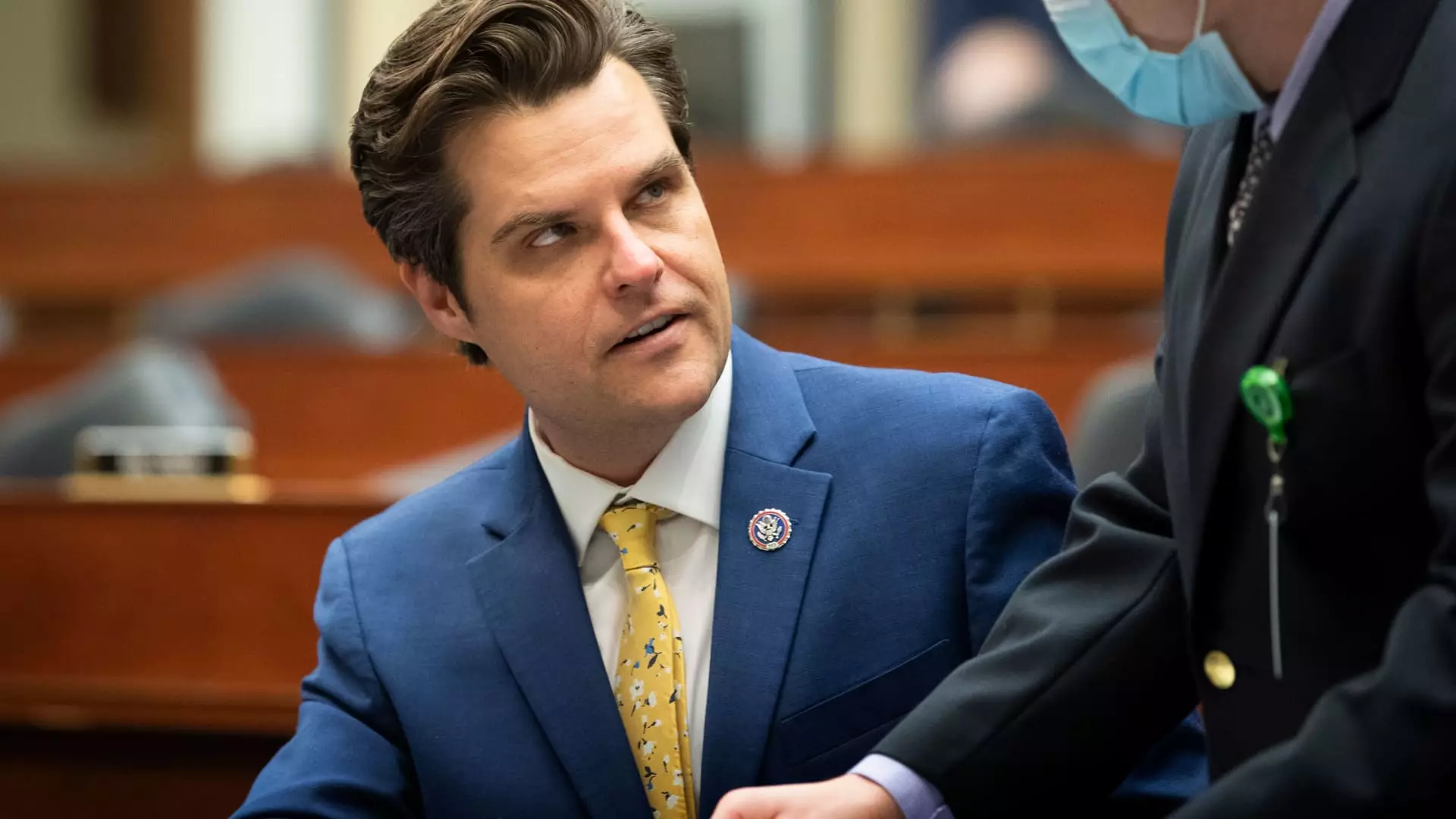The recent vote by the House Ethics Committee to approve the release of its report concerning Matt Gaetz, the former Republican congressman, raises significant questions about accountability and governance in contemporary politics. The investigation, which focuses on serious allegations of sexual misconduct and illicit drug use, represents not only a personal crisis for Gaetz but also highlights ongoing tensions within the political landscape and the ethical responsibilities of elected officials.
Matt Gaetz’s political career has been controversial from the outset. The allegations against him—ranging from inappropriate behavior involving underage girls to potential involvement in sex trafficking—have tarnished his reputation and thrown his future in public service into jeopardy. His denial of these allegations, which he has maintained consistently, adds complexity to the narrative. Gaetz asserts that such claims would not withstand legal scrutiny, emphasizing his claim of being “fully exonerated” as he reflects on the investigations led by the Department of Justice (DOJ).
However, the absence of charges from the DOJ does not erase the lingering doubts about Gaetz’s conduct. Critics of such assertions often point out that investigations can result in a variety of outcomes, and the lack of charges does not necessarily imply innocence. Thus, the Ethics Committee’s decision to proceed with its report serves as a troubling reminder that political figures are not exempt from scrutiny, even after their departure from office.
The House Ethics Committee’s actions invite scrutiny regarding its role and effectiveness. Historically, the committee has faced criticism for perceived inefficiencies and biases, yet its recent move towards releasing the Gaetz report indicates a shift in its operational approach. The initial deadlock over whether to release the report after Gaetz’s resignation signaled the complexity of navigating ethical concerns across party lines. The committee’s eventual decision can be viewed as an attempt to restore credibility amid calls for transparent governance and ethical accountability.
In this context, one must consider the argument put forth by House Speaker Mike Johnson against disclosing findings related to a former member. He warns that releasing such a report could set a “terrible precedent,” suggesting that ethical investigations ought to conclude with the tenure of the official involved. However, history reveals that similar actions, such as the disclosure of the investigation involving former Congressman Bill Boner in the 1980s, show that accountability can extend beyond an individual’s time in office. This points to a potential reevaluation of the mechanisms by which ethics are maintained in Congress.
Gaetz has openly criticized the ethics investigation, suggesting a sense of persecution fueled by biased political opponents. His public declarations attempt to frame him as both a victim of circumstance and a misunderstood figure, employing rhetoric likely aimed at preserving his supporter base. This interplay illustrates a broader trend: the weaponization of allegations in political discourse, particularly within polarized environments.
The implications of this investigation extend beyond Gaetz himself. As a prominent figure within the Republican Party, his situation influences public perception—both of party ethics and of broader political integrity. The discourse surrounding this case inevitably challenges how constituents view accountability and morality among their leaders.
As the report anticipating its release gathers public and media attention, it could either serve as a cautionary tale for other politicians or become propaganda fodder utilized by Gaetz and similar figures to rally public opinion against perceived injustices. The optics of ethics investigations can significantly alter both electoral outcomes and public trust in governance.
The unfolding situation surrounding Matt Gaetz compels a deeper examination of ethical standards within government. As the Ethics Committee prepares to make its findings public, it is crucial to recognize the significant implications such actions hold for accountability in politics. The intersection of individual conduct and institutional responsibility emphasizes the ongoing necessity for rigorous ethical oversight to maintain the public’s trust in their elected representatives. Ultimately, how this case plays out will resonate beyond Gaetz, affecting not only Republican dynamics but the ethical fabric of American politics as a whole.


Leave a Reply